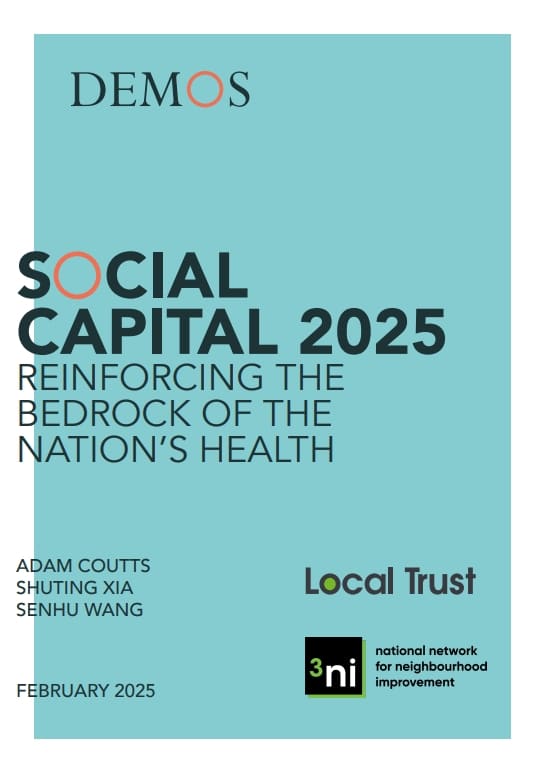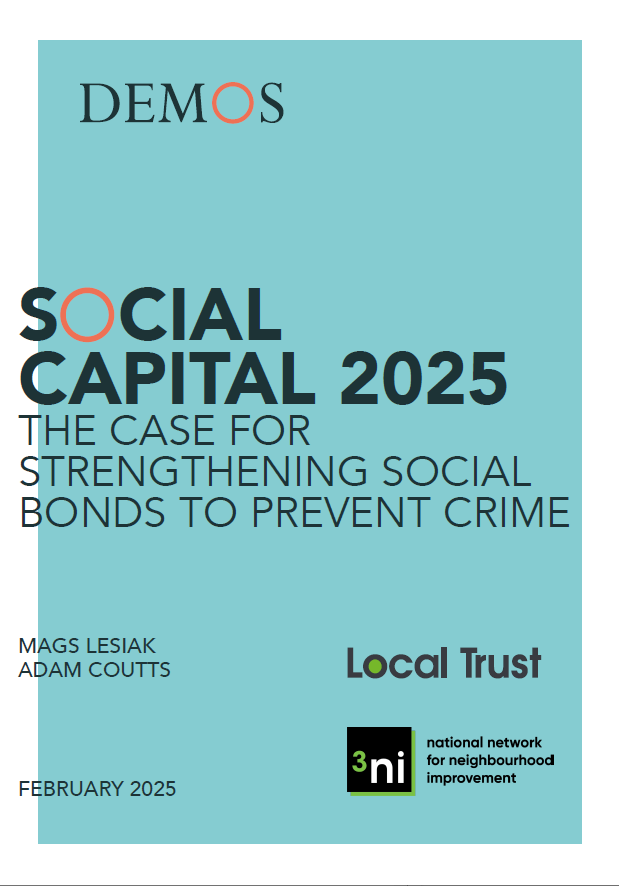Local Trust has partnered with Demos and the national network for neighbourhood improvement (3ni) to produce a series of policy papers, exploring how strong social capital can improve social and economic outcomes at the neighbourhood level.
At a time when central and local government are seeking to develop new ways of countering challenges, ranging from disparities in educational attainment to sluggish growth, the role social capital plays and its importance merit further examination.
Initially commissioned by 3ni to support local authorities facing financial constraints coupled with rising public service demand, the papers provide evidence to support a new emphasis on social capital in both policy development and delivery. They examine its role in supporting communities to improve their prospects whilst preventing deep-seated issues from taking root.
What is social capital?
Social capital refers to the support and resources available to individuals and communities through their social networks. Strong social capital is essential to maintaining successful societies – it is developed and strengthened through engaging at the hyperlocal level, in our neighbourhoods and with our neighbours.
Social capital is both a determinant and outcome of social infrastructure – they are mutually reinforcing.
People interact via their local social infrastructure, such as community spaces and places, as well as online digital connections. This generates bonding and bridging forms of social capital, which then feed back into reinforcing and strengthening social infrastructure and overall cohesion.
Social Capital 2025: The hidden wealth of nations
This paper from Andy Haldane and David Halpern makes the economic case for investment in social capital. Reviewing the evidence on the economic benefits of stronger relationships, networks and trust at the individual, community and national levels, it argues that policymakers should adopt a social capital lens to unlock solutions to current and enduring socioeconomic challenges.

Social Capital 2025: A protective shield for children, families and communities
This paper from Adam Coutts and Diego Mauricio Diaz Velásquez reviews the international evidence that social capital can provide a protective shield for children and families living in disadvantaged communities. Touching on studies relating to children’s involvement with the care system, parental abuse and young people’s likelihood of falling into criminality, it argues that policymakers should invest in social capital to tackle current and enduring social challenges facing individuals, families and communities.
The paper is accompanied by a short briefing on the different definitions of social capital, where the term came from and why the authors chose the definition they have.

Social Capital 2025: Reinforcing the bedrock of the nation’s health
This paper from Adam Coutts, Shuting Xia and Senhu Wang summarises the relevant research from the social sciences, social epidemiology, public health and psychology between 2000 and 2024 that examine the effects of social capital on mental health, mortality risk and health behaviours. The conclusion maps out possible directions for research and policies to guide the UK towards a ‘whole-of-society’ approach to health and how to build the preventative state.

Social Capital 2025: The case for strengthening social bonds to prevent crime
This paper from Adam Coutts and Mags Lesiak examines the relationship between social capital and crime. It is concerned with a fundamental question: whether a person’s social capital reduces the risk that they will break the law. It recommends that policy interventions aimed at reducing crime should recognise that environmental design and collective efficacy both affect criminality, as well as the interplay between these and a person’s moral choices.


